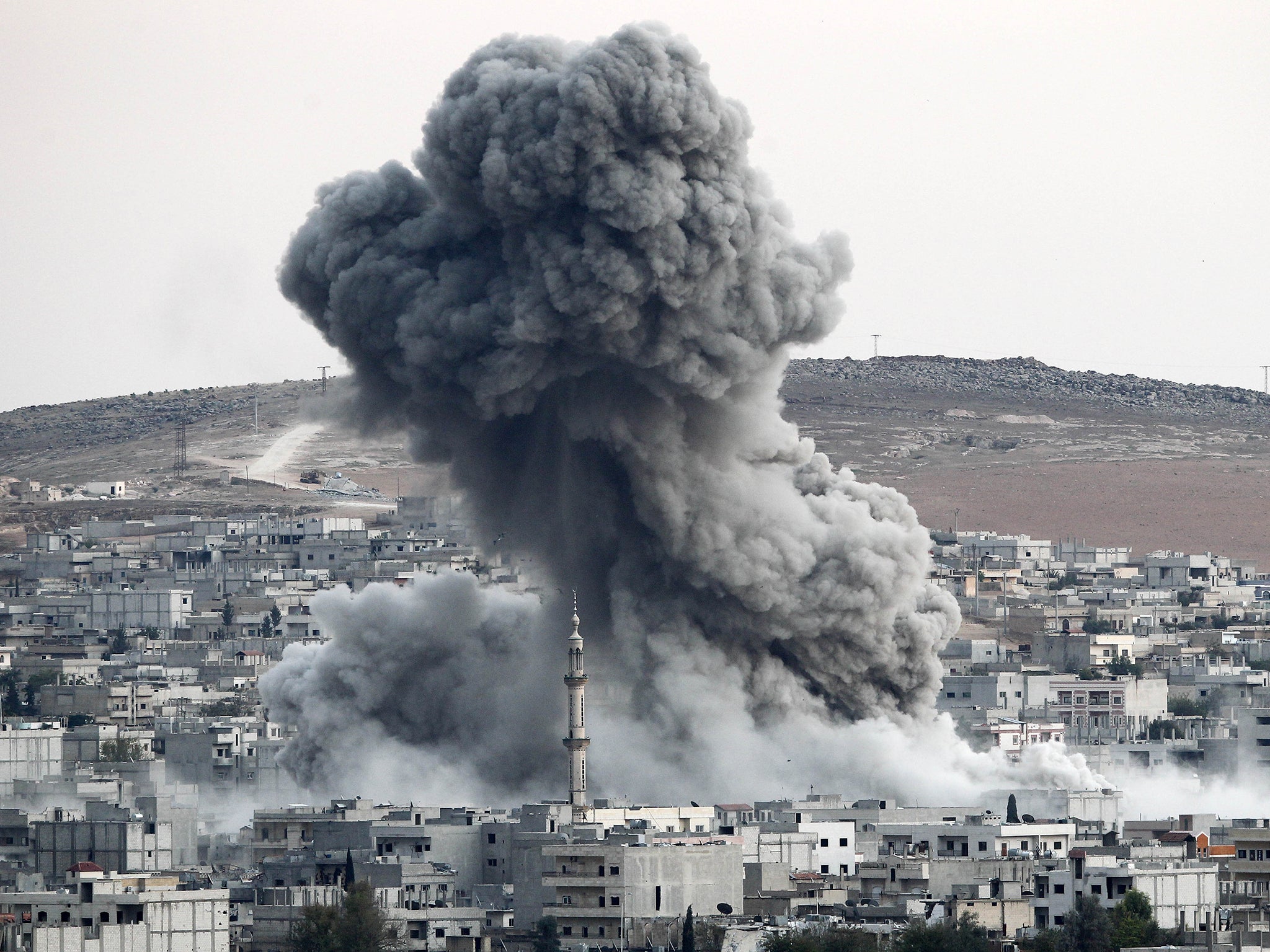US-led airstrikes in Syria: Only two civilian deaths have been admitted to – that would be extraordinary, if it were true
Up to 600 civilians may have been killed by the coalition's bombs in Iraq and Syria

Your support helps us to tell the story
From reproductive rights to climate change to Big Tech, The Independent is on the ground when the story is developing. Whether it's investigating the financials of Elon Musk's pro-Trump PAC or producing our latest documentary, 'The A Word', which shines a light on the American women fighting for reproductive rights, we know how important it is to parse out the facts from the messaging.
At such a critical moment in US history, we need reporters on the ground. Your donation allows us to keep sending journalists to speak to both sides of the story.
The Independent is trusted by Americans across the entire political spectrum. And unlike many other quality news outlets, we choose not to lock Americans out of our reporting and analysis with paywalls. We believe quality journalism should be available to everyone, paid for by those who can afford it.
Your support makes all the difference.The first year of the international Coalition’s air war against Isis has already seen more than 17,000 bombs and missiles dropped on Iraq and Syria, as part of 5,700 air strikes. This is a brutal and challenging conflict. As John Hesterman, the US general leading the air campaign recently noted, “[Isis] wrapped itself around a friendly population before we even started.” The air strikes have followed the enemy into those towns and cities under their occupation – and friendly populations have paid a price.
So far the coalition has conceded just two civilian deaths – young girls slain during a US strike on a Syrian al-Qaeda faction back in November. Asked how many other non-combatants have died, officials demurred: “We aren’t going to speculate on this subject,” one senior CENTCOM spokesman recently told me. There’s rather less discomfort when it comes to boasting of how many enemy fighters are dead: 15,000 at their last count.
Addressing this information gap, the monitoring group I head up, Airwars, has examined all known claims of civilian deaths during the last year. In this time there were almost 120 such alleged incidents of non-combatants being affected by air-strikes across Iraq and Syria. Some are currently poorly reported. Others are contested – with the Syrian or Iraqi militaries also accused of carrying out the attack.
Yet in more than 50 cases we felt there was enough evidence – often including photographs, eyewitness testimony and the names of victims – to strongly indicate civilians had been killed by the coalition. It’s likely that between 459 and 591 non-combatants died in these attacks, including 100 children.
Who killed these civilians is proving much harder to identify. Of the 12 nations that have so far bombed Daesh in Iraq and Syria, only Canada has consistently said where and when it attacks. At the bottom of the accountability list is Bahrain, which has said nothing of its airstrikes in Syria. Barely any improvement are Australia and Belgium, while a Danish official once said his military would prefer “to hide in the crowd” rather than say where it was bombing.
According to the coalition, each participating country is individually liable for the civilians it kills. So transparency matters. Britain is better at reporting its airstrikes than many. Every two weeks or so the MoD tells us where its Tornados have dropped bombs in Iraq. Yet it’s only a partial picture. Half of all British airstrikes are by the UK’s Reaper drones – and the MoD refuses to say where they bomb. The best we get at times is “elsewhere in Iraq.”
So when the Ministry of Defence asserts that “We are not aware of any incidents of civilian casualties as a result of UK strike activity over Iraq,” it’s impossible to test that claim publicly. We're unable to know whether Britain’s Reapers carried out airstrikes at the 61 locations where civilian deaths have so far been alleged for Iraq alone. And with eight other nations also bombing that country – never mind Iraqi and Iranian aircraft – there is little chance of accountability for those civilians affected. Syria is even more of a free-for-all, with Israeli and Turkish jets carrying out strikes alongside the Coalition and the Assad regime.
First in Libya – and now for Iraq and Syria – we’ve been sold the idea that wars from the air can be risk-free. But for those on the ground, the risks continue to be very real indeed. Should MPs eventually vote to extend British airstrikes against Isis to Syria, they might bear one particular fact in mind: civilians on the ground will almost certainly die as a consequence.
Chris Woods is the Director of Airwars.org, an independent monitoring group which tracks international Coalition airstrikes and reported casualties for Iraq and Syria.
Author's photo credit: Francesc Melcion
Join our commenting forum
Join thought-provoking conversations, follow other Independent readers and see their replies
Comments